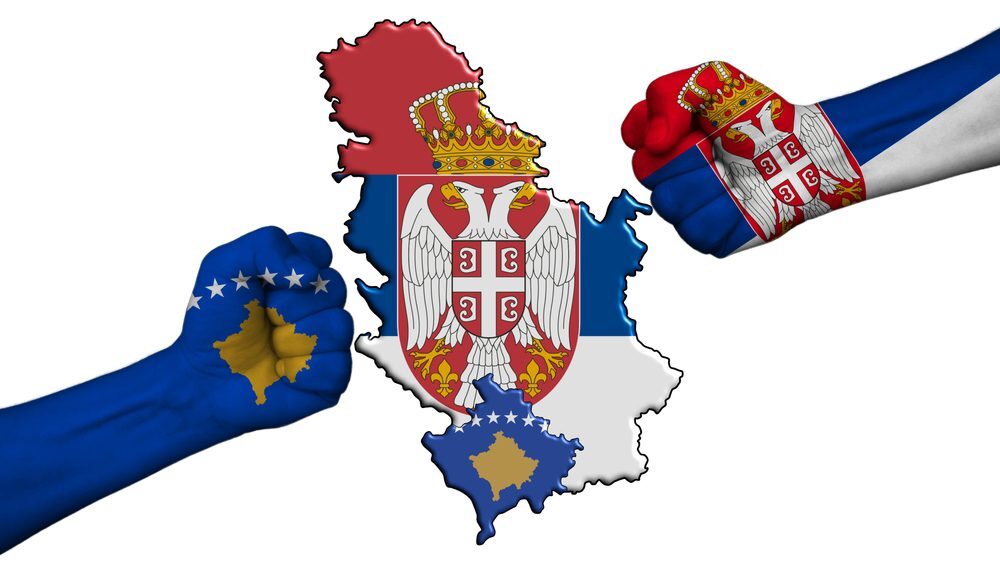
A fresh wave of unrest in northern Kosovo is threatening to undermine EU-facilitated efforts to de-escalate tensions between Belgrade and Pristina.
On Saturday, April 1st, Kosovo police announced that unknown persons had set fire to three cars during the night in Leposavić, a municipality in the north of Kosovo. That same night, vehicles were also torched in Zubin Potok, Kosovska Mitrovica, and Zvečan.
In total, 5 of these vehicles belonged to ethnic Serbs living in the region.
The acts of arson are believed to be related to the issue of Pristina-issued license plates, which in 2022 Kosovo’s government announced all vehicles belonging to Kosovo citizens must be outfitted with. The move sparked outrage among the significant ethnic Serb minority—whose sympathies lie with Belgrade—still living in northern Kosovo.
While countries such as the U.S., the UK, France, and Germany recognize Kosovo’s sovereignty after it declared independence from Serbia 15 years ago, Serbia continues to regard it as its own territory.
According to a police statement, the vehicles used to bear license plates of neighboring Serbia, yet the attack came after they were re-registered to Kosovo license plates. It added that an investigation has been launched and that security will be provided for locals.
In the meantime, one Kosovo Serb has been arrested not only on suspicion of arson, but also for an attack on a Kosovo police unit, being a member of a criminal group, assault of a public official, and attempted murder.
As reported by Euractiv, the arrest provoked the ire of Serbian List, an ethnic-Serb political party in Kosovo:
After collecting information about today’s abduction of Serbs by Kurti’s [Albin Kurti, Prime Minister of Kosovo] special forces, we would like to emphasize that the Serbian people are warning Pristina that if they do not release the unjustly arrested person and do not stop harassing Serbian people, it will provoke a reaction from all Serbs.
They stressed this was not just “some warning.”
Serbia’s Foreign Minister Ivica Dačić on Sunday slammed Kosovo’s government for being the “main generator of all crises” in Kosovo as it “avoids the commitments” it had made during EU-facilitated talks between the two parties.
Sensing that “the same old situation” is “looming”, Dačić said, “this was a real indicator of their clear intent and that they do not want peace.” He went on to call on the international community to “take this seriously” and “exert pressure on Pristina.”
As late as last November, Kosovo and Serbia reached an agreement to ease tensions over license plates issued by the Republic of Kosovo.
The next step in de-escalation efforts came in March, when both parties—under the auspices of the EU—verbally assented to strive to normalize their relations, a prerequisite for them being able to join the EU.
Chief negotiators from Serbia and Kosovo met in Brussels on April 4th to solidify the understanding both parties had then reached in Ohrid, North Macedonia.
The outcome of these talks—the success of which in light of recent events remains in doubt—has not yet been made publicly available.
